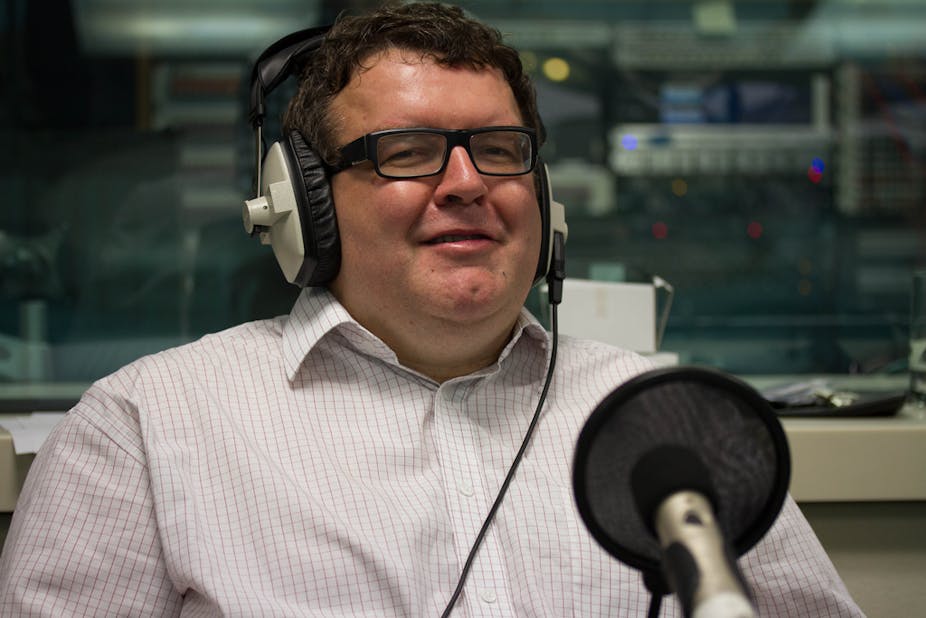Rupert Murdoch may have perjured himself before the Leveson Inquiry, according to claims made by British Labour MP Tom Watson.
Watson, who has spent much of the last five years investigating activities by News Corporation figures ranging from phone hacking to bribing police, spoke candidly with RMIT journalism lecturer Jill Singer about the “corrosive” effect that Murdoch’s media holdings can have on modern democratic processes.
Watson asks why Rupert Murdoch expressed contrition to the Leveson Inquiry into phone hacking by his now defunct Sunday tabloid the News of the World (NOTW) and was then secretly recorded telling journalists from The Sun that he regretted cooperating with the various investigations into activities by his employees.
“He was on oath and if I was Lord Leveson I’d be asking which Rupert Murdoch was telling me the truth?” asks Watson.
As the Australian election campaign draws to its denouement, Watson, a guest of international activist group Avaaz, says he believes Murdoch-owned media are openly agitating for the fall of prime minister Kevin Rudd in order to prevent superfast broadband in the form of the National Broadband Network becoming a reality that would challenge News Corp’s commercial interests.
Watson also says he holds grave concerns that WikiLeaks founder and lead candidate for the WikiLeaks Party in the Senate in Victoria, Julian Assange, may not have protected key source Chelsea Manning - sentenced to 35 year imprisonment for her role in leaking classified US secrets to the whistleblowing organisation - in accordance with sound journalistic ethics.
In this wide-ranging interview, Watson also describes his reaction to Murdoch being forced to give testimony to the House of Commons Culture, Media and Sport Select Committee, Murdoch’s diminishing influence in UK politics and his own experiences when he began investigating initial reports of wrongdoing.
Click here for an edited transcript.
Jill Singer: How concerned are you over the possibility that Rupert Murdoch perjured himself at the Leveson Inquiry?
Tom Watson: That would be for others to make that judgement in law. But what he said to Leveson was contrary to what he said in private to Sun journalists who were obviously so concerned about his conduct that they recorded it.
That was journalists at The Sun, there was more than one journalists who taped him, and there was more than one person who recorded that. While he was before Leveson he welcomed the inquiry and said they would co-operate with the police to get to the facts of the criminality.
What he told the journalists was we made a mistake, we should never have cooperated, and we won’t cooperate with the police anymore and sort of gave them the nod and the wink and said you’ll be alright if you ever get done for jail. Which is extraordinary for the chairman of a powerful global company to take that approach.
Jill Singer: Was that on oath?
Tom Watson: He was on oath, and if I was Lord Leveson I’d be asking which Rupert Murdoch was telling me the truth.
Jill Singer: What possible commercial interest do you think Rupert Murdoch could have in having an Abbott government elected?
Tom Watson: They would be one of the only companies that would benefit from there not being superfast broadband, an NBN, that goes straight into people’s homes.
I’m sure that he feels his commercial interests in the market would be best served by not welcoming competition there, and if an Abbott government doesn’t deliver that then they will be one of the few governments around the world that don’t have the intent to allow faster broadband connectivity into homes.
Jill Singer: Rupert Murdoch scoffs at that, Rupert Murdoch says that’s absolute nonsense, that the NBN would not damage his reach, or Foxtel, or anything at all.
Tom Watson: I don’t believe that. I just don’t believe it.

Jill Singer: What do you think should happen to Julian Assange?
Tom Watson: It is very hard for me to give you a clear answer on this because I’m not across it all. The main issue for me with Julian Assange is his relationship with Chelsea Manning and I was genuinely taken aback when Chelsea Manning got 35 years for what she called whistleblowing.
I’m not sure whether the WikiLeaks people necessarily protected her interests throughout the case and I worry about that. I do think you have to care for a source like that and circumstances might have made that impossible.
Jill Singer: At the time when Rupert Murdoch was giving evidence before Leveson, he said it was the most “humble day of his life”. Did you believe him?
Tom Watson: No. But I immediately thought, “that’s the soundbite”. And I have experience of that because when I was put on the committee, the first evidence session we had with the editor of the NOTW, Colin Myler and the lawyer Tom Crone, and the very first thing they did, before even questions were taken, was challenge the chair and ask for my removal from the committee and ask for my removal from the committee because I had a legal action against The Sun for libel.
So before I left the room, before the MPs finished their questioning, the breaking news story on Sky News was “Attempt to remove MPs from committee over their interest”. I thought: “this is where they are looking for their headline”.
It actually wasn’t what he wanted because most people reported it as “humble pie” given the pie incident, but the soundbite was just all part of the media operation.

